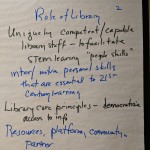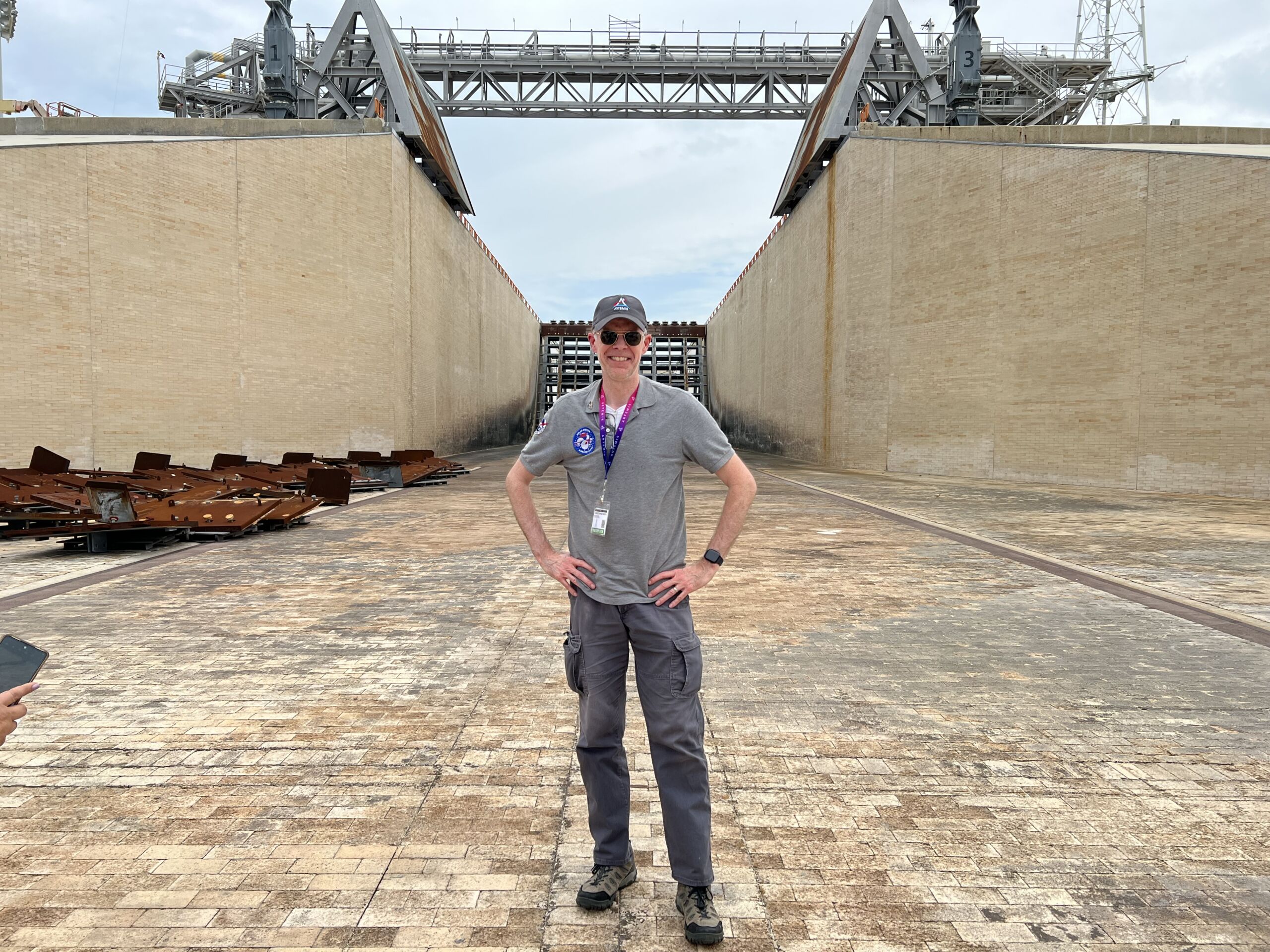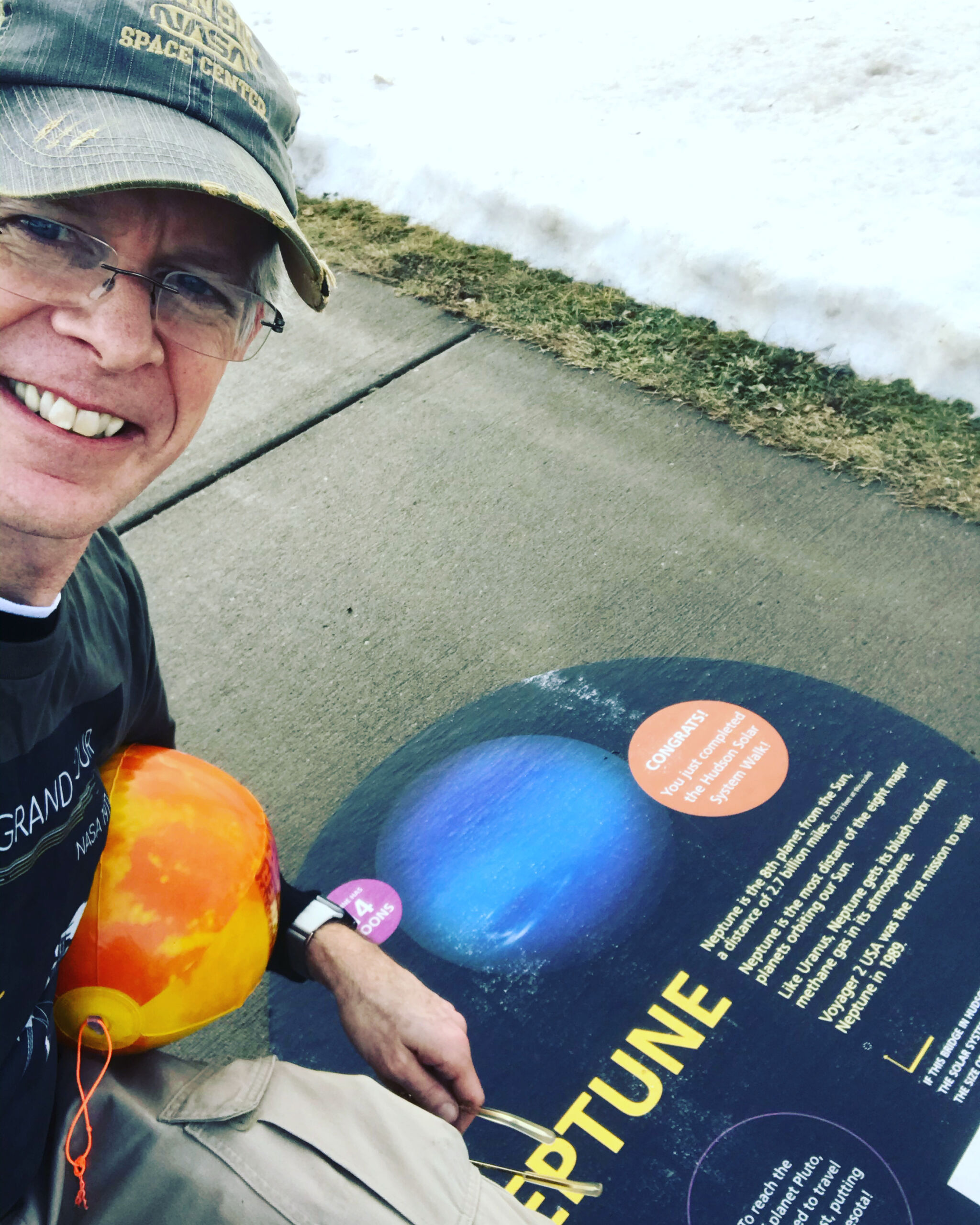 This month I had the opportunity to participate in the Working Group on Partnerships for Middle School and STEM Learning with the Urban Libraries Council. Professional Development Coordinator Keliann LaConte and Education Coordinator Brooks Mitchell, both team members for the STAR_Net program, were also in attendance where we discussed our views of STEM learning in libraries and how we can develop intentional, sustainable, and strategic partnerships within communities. Here are some key takeaways.
This month I had the opportunity to participate in the Working Group on Partnerships for Middle School and STEM Learning with the Urban Libraries Council. Professional Development Coordinator Keliann LaConte and Education Coordinator Brooks Mitchell, both team members for the STAR_Net program, were also in attendance where we discussed our views of STEM learning in libraries and how we can develop intentional, sustainable, and strategic partnerships within communities. Here are some key takeaways.
- How libraries define STEM varies but what the majority of us agreed on is that STEM learning includes fostering curiosity through hands-on learning that leads to active and engaged experiences. Regardless if you use STEM or STEAM or another acronym, this type of learning is action oriented where curiosity is a critical component.
- The community and library both have a role in facilitating STEM learning in libraries. The group discussed issues of access and equity and how communities and libraries can work together to overcome these issues by tapping into their strengths. For libraries, the people are a key asset as library staff are uniquely competent and and capable to provide STEM learning opportunities and experiences. Often STEM is perceived as something for the experts but what the group agreed on is that STEM learning in libraries is side by side learning, where facilitators, not educators, experiment and engage alongside program participants. This view can inherently lower the barrier of access to STEM learning for both the library staff as well as the youth and teens in the community. We all have inherent potential to learn and when we do so together, engagement and impact are likely to increase.
- Partnerships also vary in definitions across libraries and community organizations. The group discussed the importance of sharing expectations and ownership when collaborating on STEM learning related projects with schools, businesses, and other local organizations. Libraries should ask “What can I do to help you?” to empower the partner and can also reverse that question to ensure the library is also benefiting.
 I found this discussion incredibly interesting and inspiring. Since the meeting, I have asked my staff and colleagues to think about the key questions discussed in the meeting and encourage you to do so as well. So how do you define STEM and partnerships in your library? What role should the library have in STEM learning? And how can libraries build powerful and sustainable partnerships?
I found this discussion incredibly interesting and inspiring. Since the meeting, I have asked my staff and colleagues to think about the key questions discussed in the meeting and encourage you to do so as well. So how do you define STEM and partnerships in your library? What role should the library have in STEM learning? And how can libraries build powerful and sustainable partnerships?
If this topic resonates with you, be sure to check back with ULC later this month to learn more about the Middle School STEM Learning project.




Leave A Comment